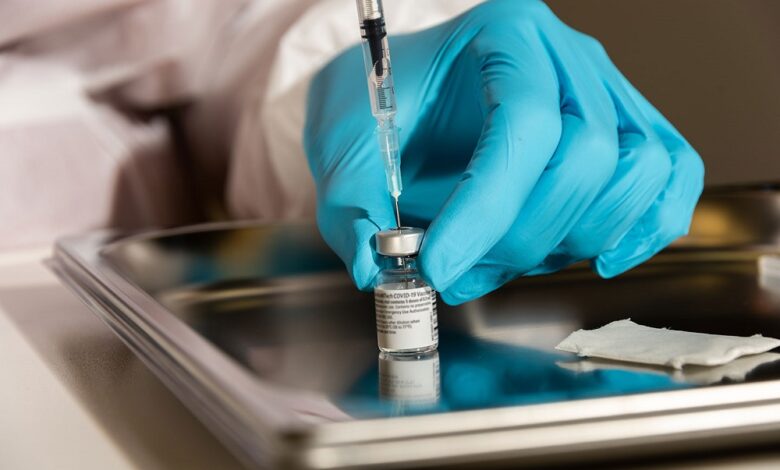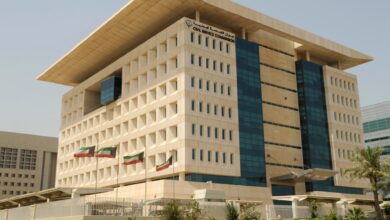
By Emmanuel Macron, José Manuel Barroso, and Mohamed Cheikh El Ghazouani
Special to The Times Kuwait
Multilateralism, we are told, is in retreat. But we cannot let retrenchment and fragmentation take over. From climate change and biodiversity collapse to the conflicts, geopolitical tension, and turbulence afflicting today’s world, we know that overcoming global challenges requires renewed and strengthened forms of global cooperation.
Fortunately, there is real cause for optimism that new and innovative partnerships can shape a better world. And perhaps nowhere is multilateralism’s track record better, and the potential rewards so great, as when we work together to improve global health outcomes.
Over the past several decades, multilateralism, solidarity, and partnership have driven stunning victories against infectious diseases, transforming the lives of some of the world’s most marginalized communities. Global child mortality, for example, has halved since 2000, and one of the primary reasons has been immunization.
Few endeavors promise as much for humanity over the coming years as immunization. Scientific breakthroughs have led to new and more effective vaccines, including the world’s first malaria vaccine, which is currently being rolled out in several African countries. And innovation is playing a key role in enabling more countries than ever before to produce and access vaccines.
On June 20, a month before the world unites for the next Olympic Games, leaders from national governments, civil society, and the private sector will come together in Paris for ‘Protecting Our Future: The Global Forum for Vaccine Sovereignty and Innovation’. Co-hosted by France on behalf of Team Europe (which includes the European Union, EU member states, the European Investment Bank, and the European Bank for Reconstruction and Development), the African Union (AU), and Gavi, the Vaccine Alliance, the meeting embodies the spirit of solidarity underlying these achievements.
While half of Africa is currently suffering from a new outbreak of cholera, which has become endemic in the region as a direct consequence of climate change, this is yet another demonstration, after COVID-19, of the need for a more predictable and accessible supply of vaccines for the developing world.
The Forum intends to mark the beginning of a new era for immunization and equity as Gavi sets out its plan to protect more children against more diseases than ever before. Now in its 25th year, Gavi has already vaccinated more than a billion children in lower-income countries — one-eighth of humanity. Along the way, it has contributed to the prevention of millions of deaths, unlocked hundreds of billions of dollars in economic benefits, and helped prevent and respond to outbreaks of new and re-emerging diseases.
In the future, we expect that vaccines will play an even larger role in keeping us all safe (a vaccine against colon cancer is now being tested in the United Kingdom) and helping countries to develop. Vaccines play an important role in reducing the risk of antibiotic resistance, and when it comes to helping countries adapt to climate change, they provide protection against outbreaks of waterborne diseases such as cholera and mosquito-borne diseases such as malaria and yellow fever, all of which can be triggered by floods, droughts, and rising temperatures.
Vaccine sovereignty means helping countries take ownership of their own national strategies, as well as giving them the means to access the vaccines they need, especially in times of crisis and global supply-chain disruptions, such as the one we experienced during the COVID-19 pandemic. A unique strength of Gavi’s model is that it is sustainable by design, pooling demand to secure affordable prices while asking countries to contribute more toward covering the cost as their national incomes rise.
To date, 19 countries’ economies have grown to the point that they have transitioned out of Gavi support and now pay the full costs of their national vaccine programs. Over the next five years, Gavi-supported countries will make their largest-ever investment in immunization, paying over 40 percent of the costs of their routine vaccines.
Vaccine sovereignty also means having access to a secure vaccine supply. The pandemic highlighted the inherent injustice and inefficiency of concentrating vaccine production in a few countries, which was reflected in long delays in access for countries and continents that were locked out of the manufacturing ecosystem.
The African Vaccine Manufacturing Accelerator (AVMA), a $1 billion financing mechanism that will also be launched in Paris, is designed to rebalance that ecosystem by catalyzing the emergence of robust vaccine manufacturing capacity in Africa, which currently produces only 2 percent of the vaccines it uses. AVMA will emphasize funding for vaccines that are currently in short supply, such as vaccines against cholera and Ebola. This is consistent with the AU’s Agenda 2063, which states that a healthy, prosperous population in Africa can be achieved through research, development, and innovation. And it is good for the world, because no one is safe until everyone is safe.
In a world that often seems divided, the Protecting Our Future Forum is a chance to celebrate the unparalleled global impact of immunization and, more broadly, the untapped potential of global solidarity and partnership. We will be there alongside heads of state from around the world to show our unwavering support for Gavi’s ambitious program and its efforts to raise the funds it needs to deliver a healthier, more prosperous future by making this the most protected generation in history.

Emmanuel Macron
Emmanuel Macron is President of France.

José Manuel Barroso
José Manuel Barroso, a former president of the European Commission and prime minister of Portugal, is Chair of Gavi, the Vaccine Alliance.

Mohamed Cheikh El Ghazouani
Mohamed Cheikh El Ghazouani is President of Mauritania and Chairperson of the African Union.
Copyright: Project Syndicate, 2024.
www.project-syndicate.org













